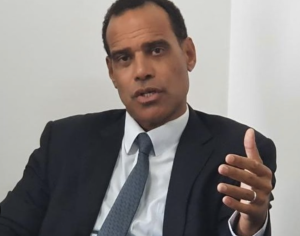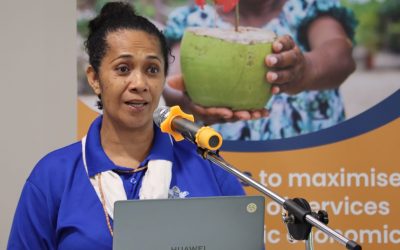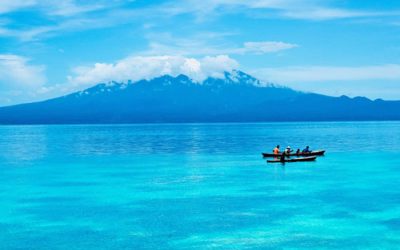By Ralph Regenvanu

Ralph Regenvanu, Vanuatu’s Minister for Climate Change Adaptation. (Pic Courtesy RNZ Pacific).
The Pacific Islands Forum this week will bring together nations who share what we call the Blue Pacific Continent, stretching from the hundreds of islands and atolls of Micronesia in the North all the way down to the Alpine like conditions of New Zealand’s Southern tip.
Together, we are custodians of almost a fifth of the earth’s surface, and at the great crossroads of strategic interest for many nations. We are also some of the most vulnerable countries to the impacts of climate change and have contributed the least.
One issue looms large and demands our attention. Our neighbour Australia is bidding to preside over Cop31, a crucial meeting of the world’s climate negotiators in 2026 in partnership with the Pacific.
As part of the United Nations group known as Western Europe and Others, it will be primarily European countries that decide whether that bid goes ahead. I urge that these countries consider not just Australia’s words, but its actions as it plans some of the largest fossil gas expansion in the world in the run up to 2050.
Australia’s Cop31 proposal is welcome, but it needs actions
This year’s global stocktake of decades of climate action will tell us what none of us wants to hear. That we have not, collectively, brought emissions under control – indeed the world’s CO2 emissions are set to rise by about 1 percent to new record in 2023 – when they need to fall very rapidly. It is beyond time that we did the one thing that we’ve not yet tried – keeping fossil fuels in the ground.
Australia has claimed it is “back in the tent” in international climate circles. Indeed, Pacific nations welcomed Australia’s renewed commitment to climate action after the 2022 election, where the government won on a platform of greater environmental responsibility. Yet after a year, Australia’s commitment to reduce emissions still falls short of what they promised by signing the Paris Agreement.
Pacific Island nations, including my home country, Vanuatu, sit on the front lines of the climate crisis. We face rising sea levels that threaten to swallow our homes and increasingly frequent and increasingly destructive weather events.
Our ability to adapt will be made impossible by Australia’s hypocritical gas expansion plans. Vanuatu has been at the forefront of climate action – we led a coalition of countries to secure an advisory opinion on climate change from the United Nations International Court of Justice, and we are working towards a fossil fuel free Pacific.
At great cost, we are decarbonising our shipping register. We understand that climate action may require short term adjustments and we are willing to do that. I’m not confident that all countries share our resolve.
The Pacific Island nations are in desperate need of genuine allies who will stand with us in our fight for survival. Australia, with its financial resources and international influence, should be such an ally. However, for Australia to be seen as a credible leader of climate talks, it must first resolve glaring inconsistencies in its climate policies.
The fact is that Australia remains the world’s third-largest fossil fuel exporter, with 116 new coal and gas projects in the pipeline, some of which are slated to operate until at least 2070. This persistence in fossil fuel expansion is fundamentally at odds with the spirit of the Paris Agreement and poses a direct threat to the climate goals set by the international community.
Australia’s bid to lead Cop31 is a momentous opportunity for the nation to prove its dedication to addressing the global climate crisis. The world is watching, and the Pacific Island nations are looking for unwavering support, not empty promises.
And part of that must be conditionality attached to approving its Cop bid. We cannot afford another climate summit brought to you by the fossil fuel industry. The time has come to demonstrate that commitment to climate action is more than just rhetoric. It’s time to do the right thing, securing a climate safe future for all our countries.
Ralph Regenvanu is Vanuatu’s minister for climate change adaptation, energy, environment, meteorology, geohazards and disaster management.
(First appeared in Pacnews dated 6 November 2023, in the week of the Annual Pacific Islands Forum meeting in Rarotonga, Cook Islands)



